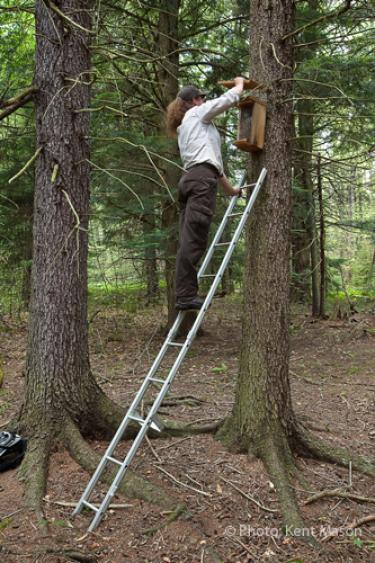Wildlife Biologists
Why a Wildlife Biologist?
Widlife biologists are specialists in creating and managing wild animal populations and habitats.
Many landowners want to attract wildlife to their property to better enjoy photography, hunting, fishing, and birdwatching. Wildlife biologists study animals and wildlife—their origin, behavior, diseases, and life processes--and are therefore best equipped to advise you how to develop your woods into an Eden that is teeming with the animals and plants that you want to attract.
A qualified biologist can look at timber stands and habitat types on your property and provide you with some valuable feedback including:
- An assessment of each stand/habitat’s current value for the wildlife species of interest.
- A prediction of each stand/habitat’s potential value under different management regimes.
- A list of recommended management activities to improve your woods' attractiveness to wildlife.
- An analysis of how current and potential land and water use patterns are affecting animal and plant populations in your area and how you can counter those trends.
What Qualifications Should I Be Looking For?
Most biological scientists have a Ph.D. in biology or one of its subfields and they work in independent research or development positions. Other positions are available to those with a masters or bachelors degree in the field.
The Wildlife Society, a nonprofit scientific and educational organization devoted to stewardship and appreciation of wildlife, certifies wildlife biologists as follows:
- Certified Wildlife Biologist: A Certified Wildlife Biologist is a professional who meets requisite educational and experience requirements and has demonstrated expertise in the art and science of applying the principles of ecology to the conservation and management of wildlife and its habitats.
- Associate Wildlife Biologist: An associate wildlife biologist is an applicant for professional certification who has limited experience but who has completed the rigorous academic standards and is judged to be able to represent the profession as an ethical practitioner.
- Professional Development Program: A graduate of the Professional Development Program from the Wildlife Society receives a Professional Development Certificate.
How Do I Find One?
You might elect to have a state or federal agency wildlife biologist visit your property, or you can hire a private consulting wildlife biologist. Your state’s wildlife agency can put you in touch with a wildlife professional.
Find out more
This excellent booklet from Purdue University's Department of Forestry and Natural Resources provides more information how to work with a wildlife biologist.
How can I get more tips?
It’s simple! Enter your email below.

